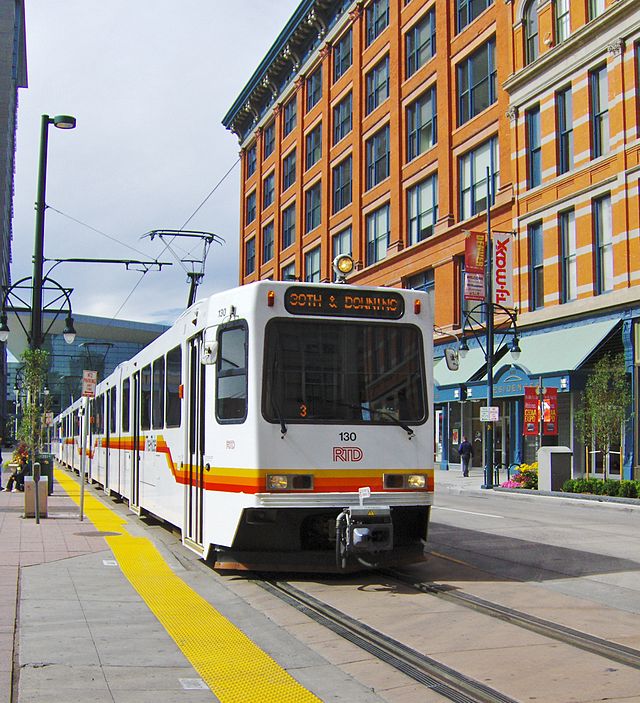It’s time to rev up the annual fight over parity between federal transit and parking benefits for commuters. Members of Congress hope this might finally be the year to get it done.

This morning, Reps. Earl Blumenauer (D-OR) and Jim McGovern (D-MA) announced that they will, again, push to equalize the tax benefits available to transit commuters and car commuters.
Right now, people who drive to work can get up to $250 a month in tax-free earnings to pay for parking. The monthly tax-free income available to the 3 million Americans who use the transit benefit, meanwhile, is capped at $130.
With the passage of the 2009 stimulus law, parity was implemented between the parking benefit and transit benefit for a brief while. After extending the higher transit benefit a few times, however, in recent years Congress has failed to take the necessary action to do so.
At today’s press conference, Washington Metro Board Chair Tom Downs noted that Metro ridership had stagnated since transit benefits dropped. “If you’re providing a $1,500-a-year incentive to drive your car over taking transit, you’re probably going to have an impact on mode choice,” Downs said.
Increasing the transit benefit makes the law more fair, but it probably won't make a big impact on how people get to work. Studies show that providing parking benefits always increases solo driving rates, whether or not the workplace also offers transit perks. Better to do away with all commuter benefits than to provide both [PDF]. Besides, most transit commutes cost far less than $235 a month. A monthly New York subway pass costs $112. In DC, you’d have to travel from one end of the system to the other every day during peak hours to make use of the full $235 transit benefit Blumenauer proposes.
Though Blumenauer’s plan only cuts the parking benefit by $15, it's deficit neutral (at worst), since so many more people drive than use transit.
“We’ve watched the system on automatic pilot start to tilt further in favor of people who drive while it cuts the benefit in half for people who take transit,” Blumenauer said. “And frankly, we’re in a situation where the auto user actually is seeing dramatic reductions in their costs because gas prices have dropped 73 cents since their peak earlier this year. But transit is taking the hit.”
In previous years, Blumenauer has included a bicycle benefit as part of similar bills, but this year he’s trying to keep it simple. “It should be [part of this],” he said, “but we don’t want to complicate things unduly.” Then he added that “it’s so much fun to bike anyway,” implying that people don’t need financial incentives to ride.
The hope is that parity for transit commuters will muster bipartisan agreement if it can be made deficit-neutral, as this bill is.
“If there ever was a no-brainer, this is it,” Rep. McGovern said. “This is something I think everybody agrees on. I haven’t heard anybody say it’s a bad idea. So if we all agree on it, let’s just do it.”
No Republicans appeared at the press event, but Rep. Michael Grimm of Staten Island has championed the idea in the past.
Recent attempts to revert to parity and make it permanent were thwarted by the effort to pass a broader tax reform package, rather than pick off items to address individually. That package didn’t pass, however, so now lawmakers plan to address some “tax extenders” during the lame duck period. This, Blumenauer says, should be one of them.





